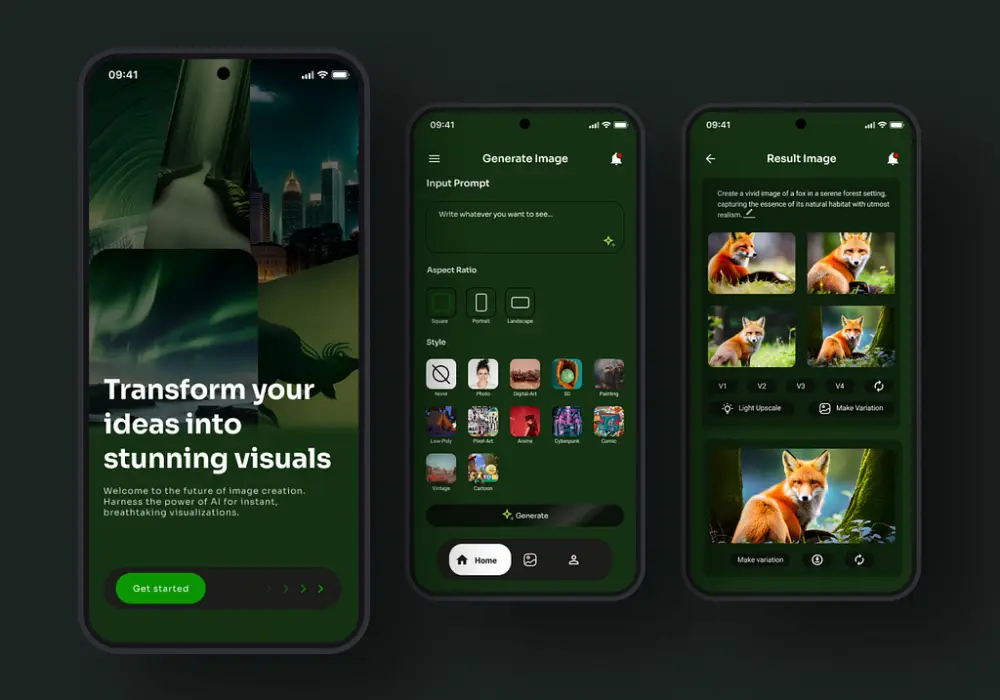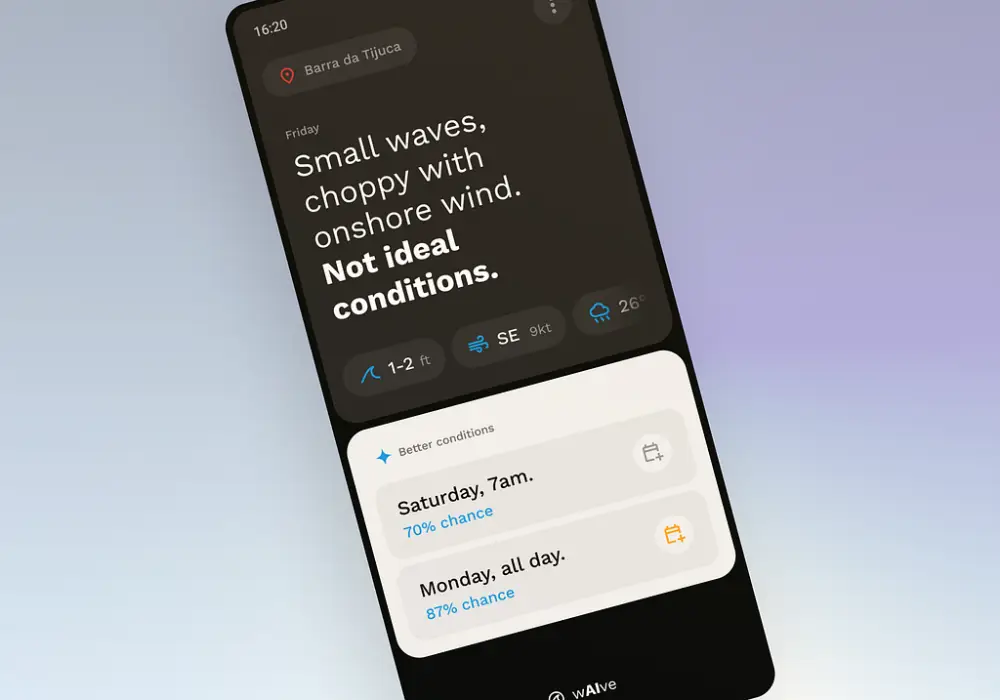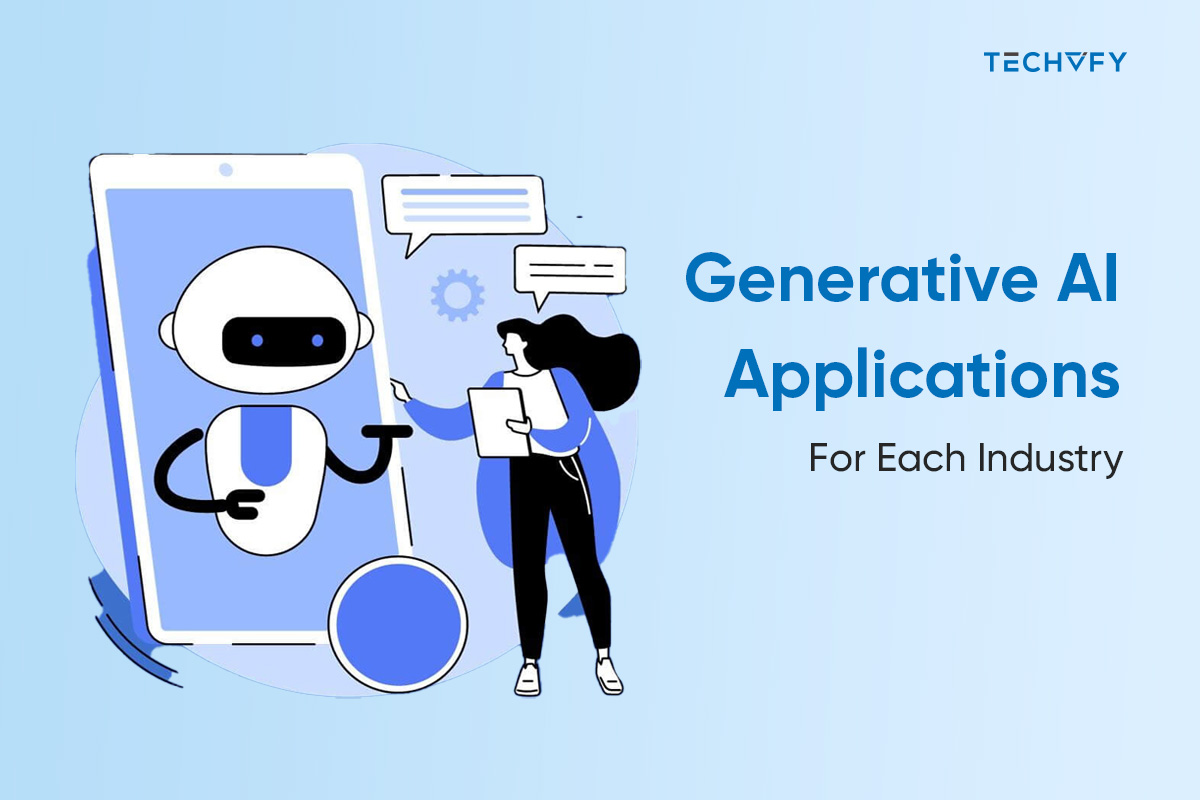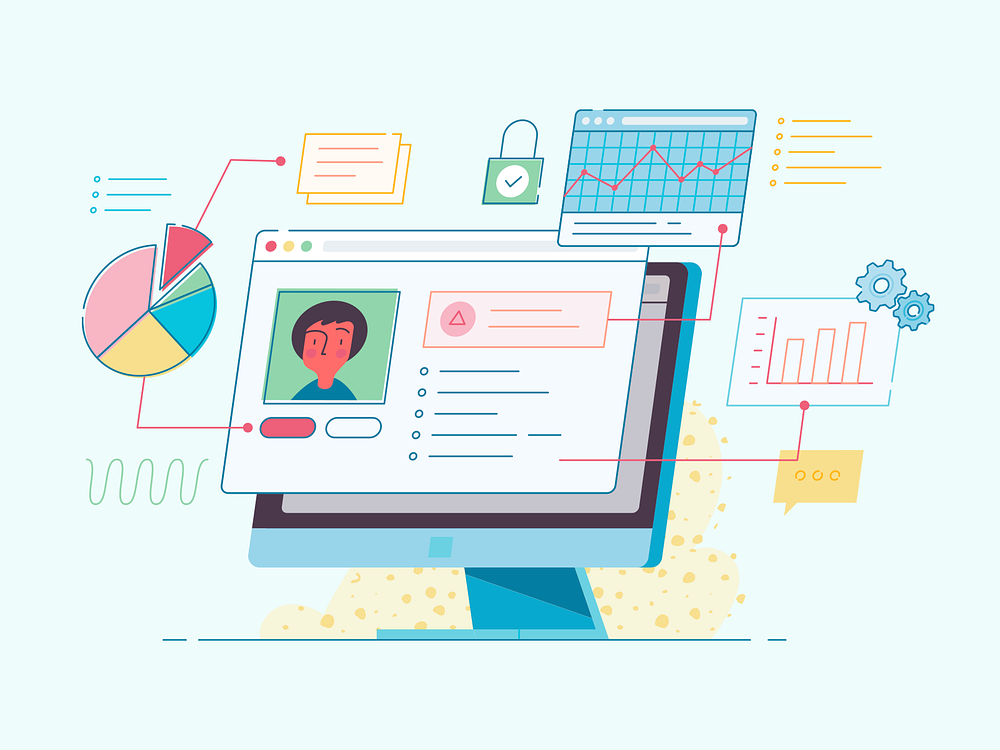Generative AI vs Predictive AI: Key Differences Explained
- TECHVIFY Team
- 0 Comments
Have you ever wondered about the technology behind AI-generated movie scripts or how companies predict consumer behavior? Welcome to the dual domains of Generative AI and Predictive AI. Generative AI can surprise us by crafting original content that ranges from poetry to prototypes, whereas Predictive AI allows businesses and governments to forecast outcomes with unprecedented accuracy, using patterns derived from existing data.
As we explore the contrasts and capabilities of Generative AI vs Predictive AI, we’ll uncover how these technologies are not just reforming industries but are also enhancing our everyday lives. This discussion promises to be as informative as it is engaging, and your perspectives are highly valued. Let’s get started and unravel the marvels of AI together!
1. Exploring the Explosive Growth and Market Dynamics of Artificial Intelligence
As we delve deeper into the world of artificial intelligence, it’s crucial to understand the overarching trends and rapid growth within this sector. Here, we’ll explore some key statistics that highlight the burgeoning impact of AI on various industries and economies globally. These insights will help us grasp the scale at which both generative and predictive AI are being integrated into our digital lives.
- Global AI Market Size: Expected to reach USD 997.77 billion by 2028, growing at a CAGR of 40.2% from 2021 – Statista
- Investment in AI: Over $93 billion was invested in AI startups globally in 2021, demonstrating the robust interest and confidence in AI technologies – McKinsey
- AI in Healthcare: Predictive AI in healthcare is anticipated to save the U.S. healthcare system $150 billion annually by 2026 – Deloitte
- Automation and Employment: According to a KPMG report, 30% of jobs are at risk of being automated by 2030, driven by advancements in AI and machine learning – KPMG
- AI-Driven Business Efficiency: AI technologies are projected to boost business productivity by up to 40% by enhancing efficiencies through automation and intelligent decision-making processes – Accenture
- Revenue Increase: Businesses implementing AI have reported an average revenue increase of 32%, attributing this growth directly to the efficiencies and capabilities gained from AI integration – Forbes
2. What is Generative AI?
Generative AI refers to a subset of artificial intelligence technologies that are capable of generating new content, solutions, or data that mimic human-like creativity. These AI systems learn from vast amounts of existing data and are then able to produce original outputs which could be anything from text, images, and music to code and beyond. Unlike traditional AI that simply analyzes data and provides insights or predictions based on that data, Generative AI actively creates, offering new and often innovative content that did not previously exist.
2.1. Use Cases of Generative AI
Generative AI has a transformative impact across various sectors by automating and enhancing processes. Below are detailed examples of its application:
- Chatbots and Virtual Assistants: Generative AI powers sophisticated chatbots and virtual assistants that streamline customer service, providing quick and accurate responses to inquiries, thereby reducing operational costs.
- Conversational Analytics: This technology analyzes customer feedback from multiple sources, such as surveys and comments, to identify prevalent themes, gauge sentiment, and track emerging trends.
- Agent Assist: AI enhances customer service agent efficiency by automating routine tasks, improving knowledge base navigation, and offering customized product recommendations to aid in cross-selling and upselling.
- Personalization: Generative AI excels in curating personalized customer experiences by tailoring products and communications to individual preferences, thus boosting engagement.
- Employee Assistant: By facilitating quick access to information and automating content creation and summarization, generative AI significantly boosts employee productivity.
- Code Generation: It accelerates software development by providing real-time coding suggestions, streamlining the creation process based on developers’ inputs.
- Automated Report Generation: AI tools automatically produce detailed financial reports and projections, which saves time and minimizes human error.
- Marketing Content Creation: Generative AI creates compelling marketing materials, from blog posts to social media updates, which helps in saving time and optimizing content delivery.
- Sales Enhancement: It generates customized emails and sales scripts tailored to the customer’s profile and industry, enhancing engagement and response rates.
- Product Development: AI-driven tools speed up the product design process by generating multiple prototypes or optimizing designs based on user feedback and specific constraints.
- Document Processing: This application improves operational efficiency by extracting and summarizing key data from extensive documents automatically.
- Data Augmentation: Generative AI creates synthetic datasets that help in training machine learning models, especially useful when original data is limited or sensitive.
- Supply Chain Optimization: AI models assess and enhance supply chain operations by simulating various scenarios to identify the most efficient approaches.
2.2. Benefits of Generative AI for Business
Generative AI offers numerous advantages for businesses across different industries. Here are some of the key benefits:
- Enhanced Creativity and Innovation: Generative AI can push the boundaries of traditional design and content creation, offering businesses the opportunity to innovate more rapidly and distinctly.
- Cost Reduction: By automating the creation of content and designs, businesses can significantly reduce the time and cost associated with these processes.
- Scalability: Generative AI allows businesses to scale their operations effectively by automating and augmenting creative processes.
- Personalization: Businesses can use Generative AI to tailor products, services, and marketing to individual customer preferences, enhancing customer satisfaction and engagement.
- Speed to Market: Reducing the development cycle for new products and marketing campaigns allows businesses to react quickly to market changes and opportunities.
- Risk Mitigation in Design and Production: By generating numerous design or solution options, Generative AI can help identify the most viable and risk-averse options before committing resources.
Looking for a Software Development Company?
TECHVIFY is the best option for you. Book a free consultation to get an accurate time and cost estimation for your project.
3. What is Predictive AI?
Predictive AI refers to the branch of artificial intelligence that focuses on analyzing historical data and identifying patterns to make predictions about future events. This technology uses statistical algorithms and machine learning techniques to forecast outcomes with a significant degree of accuracy. By understanding past behaviors, predictive AI can provide insights that inform decision-making across a variety of fields, from healthcare to marketing.
3.1. Use Cases of Predictive AI
Predictive AI is integral in several key areas, streamlining operations and enhancing decision-making processes:
- Inventory Management: Predictive AI analyzes past sales data to forecast periods of increased demand, ensuring that businesses maintain optimal inventory levels to meet customer needs.
- Supply Chain Management: This technology predicts potential road congestion and adjusts shipping schedules and logistics to optimize delivery times and reduce costs.
- Personalized User Experiences: By examining previous user interactions, predictive AI can predict future behaviors and preferences, allowing for the customization of user experiences.
- Healthcare Predictions: With access to extensive medical histories, predictive AI can forecast potential health issues, aiding in preventative care and personalized treatment plans. This application, however, must comply with stringent regulations such as HIPAA.
- Marketing Campaign Optimization: Predictive AI evaluates consumer behavior to predict the types of content or products that potential customers will find appealing, thereby enhancing the effectiveness of marketing strategies.
3.2. Benefits of Predictive AI for Business
The implementation of predictive AI offers several compelling advantages for businesses seeking efficiency and strategic edge:
- Enhanced Forecasting Accuracy: Businesses can greatly improve their forecasting capabilities, leading to better inventory and resource management.
- Cost Efficiency: By optimizing operational and logistical strategies, companies can significantly reduce wasted resources and associated costs.
- Increased Customer Satisfaction: Tailored user experiences not only enhance customer engagement but also lead to higher satisfaction and loyalty.
- Proactive Health Management: In healthcare, predictive AI enables earlier interventions, which can lead to better patient outcomes and more efficient resource allocation.
- Improved Marketing ROI: By targeting marketing efforts more effectively, businesses can achieve higher returns on investment, capturing and retaining interest more successfully.
4. Comparison Between Generative AI and Predictive AI
Let’s take a closer look at the key differences between Generative AI and Predictive AI through the following comparison:
| Feature | Generative AI | Predictive AI |
|---|---|---|
| Purpose | Generates new, innovative content | Predicts future events based on past data |
| Applications | Art, music, design, content creation | Trend forecasting, healthcare, supply chain management |
| Data Use | Creates new outputs from learned data | Analyzes historical data to forecast outcomes |
| Outcome | Produces original, creative outputs | Provides forecasts and insights for planning |
| Impact | Drives innovation and creativity | Enhances strategic planning and efficiency |
Conclusion
In conclusion, both Generative AI and Predictive AI offer powerful capabilities that can significantly impact various aspects of business operations, from enhancing creativity and generating innovative content to improving forecasting accuracy and strategic planning. Understanding the distinct and complementary roles of these technologies can help businesses leverage AI effectively to meet their unique challenges and objectives.
At TECHVIFY, we specialize in developing custom AI solutions that are precisely tailored to the specific needs of your business. Whether you’re looking to innovate with Generative AI or enhance your predictive capabilities with Predictive AI, we can help you harness the full potential of these advanced technologies. Contact us today to discover how our tailored AI solutions can transform your business operations and drive your success.
Let’s talk
A consultation with the Client Relationship Manager, who represents TECHVIFY, without any commitment from your side, will give you:
- Structured and clear vision of your future application
- Information about how our software development company guarantees 100% on-time and on-budget delivery
- Recommendations for choosing the tech stack
- Advice on further steps
- Business-side recommendations
- Rough project estimation on software development
TECHVIFY is right where you need. Contact us now for further consultation:







